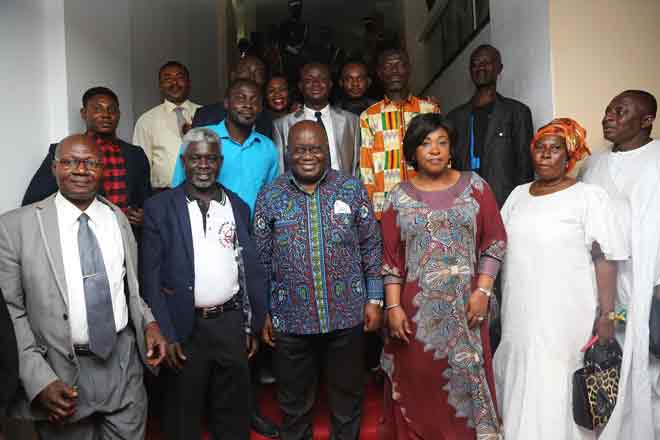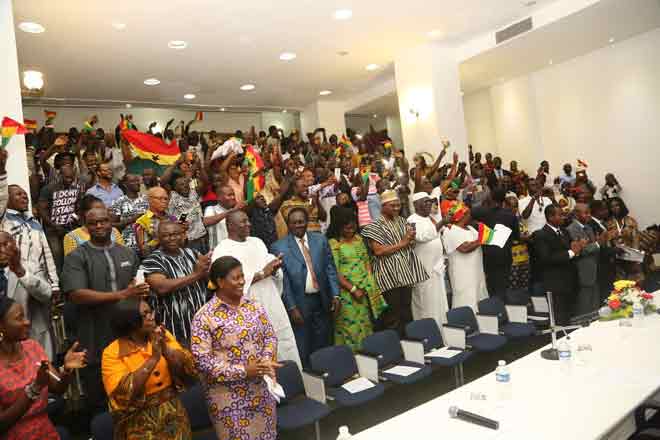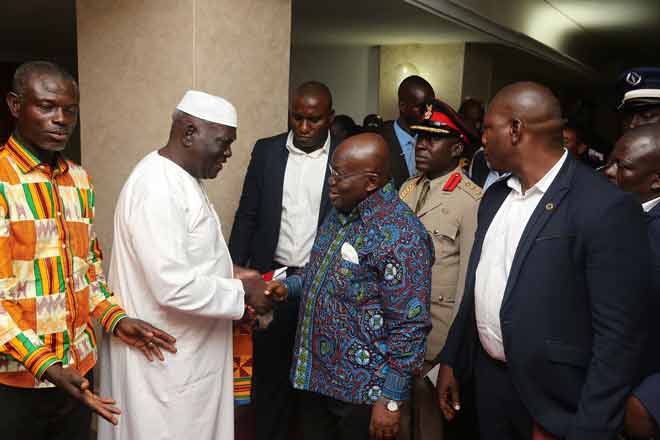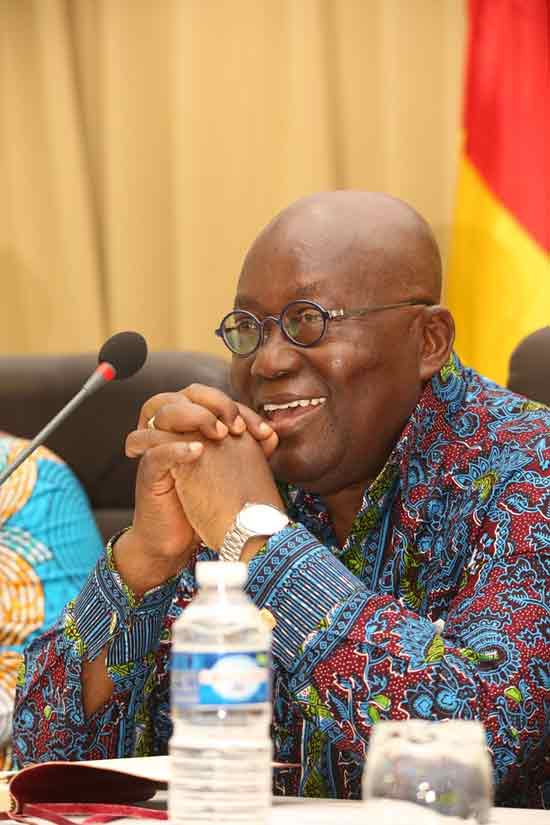The President, Nana Addo Dankwa Akufo-Addo, has assured that his government has begun fulfilling the promises made to Ghanaians in the run-up to the December 2016 elections, adding that, sooner rather than later, Ghanaians will be witnesses to the immense benefits of the realisation of the pledges made to them.
President Akufo-Addo indicated that he did not make the promises to win votes, as his political opponents sought to portray, but made them “to save the future of our country.
Addressing the Ghanaian Community resident in Dakar, on Tuesday, May 16, 2017, the 2nd day of his 3-day visit to Senegal, the President was confident that “with correct and honest leadership, we can get to where all of us want to get to. I am confident of that the path we are on.”
The path to returning Ghana onto the path of progress and prosperity, he indicated, has begun with the revival of the Ghanaian economy.
With the majority of jobs in Ghana created by the private sector, the President indicated that “if the private sector does not have the strength to be able to operate and grow, it becomes difficult to create jobs. So our attitude has been that, let us do whatever we can to strengthen the private sector in Ghana to work and create jobs, especially for our young people in Ghana.”
To this end, President Akufo-Addo noted that the raft of tax cuts and incentives introduced to stimulate the growth of the private sector has resulted in $1 billion of revenue taken away from the exchequer, so private sector operatives use that money to grow their businesses and create jobs for the youth.
The Free Senior High School Policy, described by President Akufo-Addo as “my obsession”, he said, is on its way to being fulfilled, indicating that his government will fund the cost of public Senior High Schools for all those who qualify for entry from the 2017/2018 academic year onwards.
With the restoration of the National Health Insurance Scheme being a major campaign pledge, President Akufo-Addo noted that his government has found it necessary to find the money to stave the scheme off collapse.
“The NHIS was collapsing because it owed so much to the providers, and a lot of the providers were insisting on ‘cash and carry’. We don’t want to go back to ‘cash and carry’.
We have begun to claw back the arrears and began now to pay the service providers. So in the months ahead of us, we are going to see the full recovery of the NHIS,” he assured.
Touching on the agricultural sector, President Akufo-Addo told the gathering that the programme for “Planting for Food and Jobs” launched in Goaso a month ago is the answer to the twin-problem of the migration of youth to city centres in search of non-existent jobs, as well as an end to the disgraceful spectacle of Ghana importing food stuffs from neighbouring countries.
Planting for Food and Jobs, the President explained, will be anchored on the pillars that will transform Ghanaian agriculture: the provision of improved seeds, the supply of fertilizers, and the provision of dedicated extension services.
Assuring that all the necessary measures have been put in place to guarantee the success of the programme, President Akufo-Addo indicated that to ensure fertilizer is readily available to the farmer at affordable prices, government has reduced the prices of fertiliser by 50%.
Additionally, with a looming shortage of agricultural extension officers in the next two to three years, and largely as a result of the previous NDC administration’s decision not to employ any of the 3,200 graduates from the country’s 5 Colleges of Agriculture between 2011 and 2015, President Akufo-Addo revealed that his government has, in the last 3 months, employed 1,200 of these graduates.
He assured further that “in 2018, we will employ 2,000 more extension officers, with the solemn pledge of employing more graduates from our Colleges of Agriculture in the subsequent years.”
On the commitments made to protect the public purse, President Akufo-Addo stressed that his government is “bringing back competitive tendering for all transactions in the public sector. Sole sourcing, with one or two people sitting in a room and agreeing on things, is over. We are not going to do that again in Ghana. We are going to make sure that the competitive basis for doing things is restored.”
He concluded by stating that “We are determined to turn round the fortunes of Ghana. Ghana should not be a poor nation. We are not a poor nation. I refuse the description of Ghana as a poor country. We are a rich nation, and we will make sure that the wealth of the country is apparent in the lives of its people.”



























